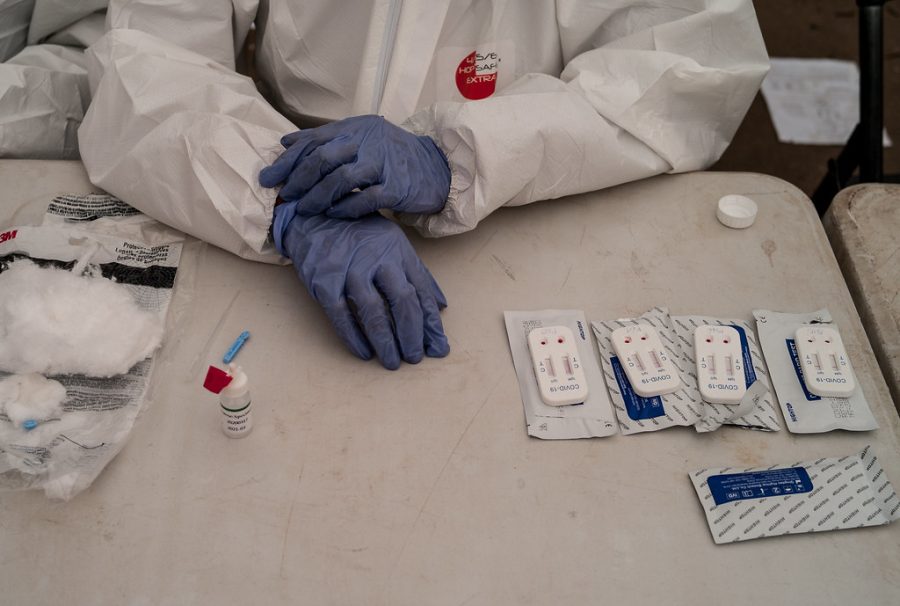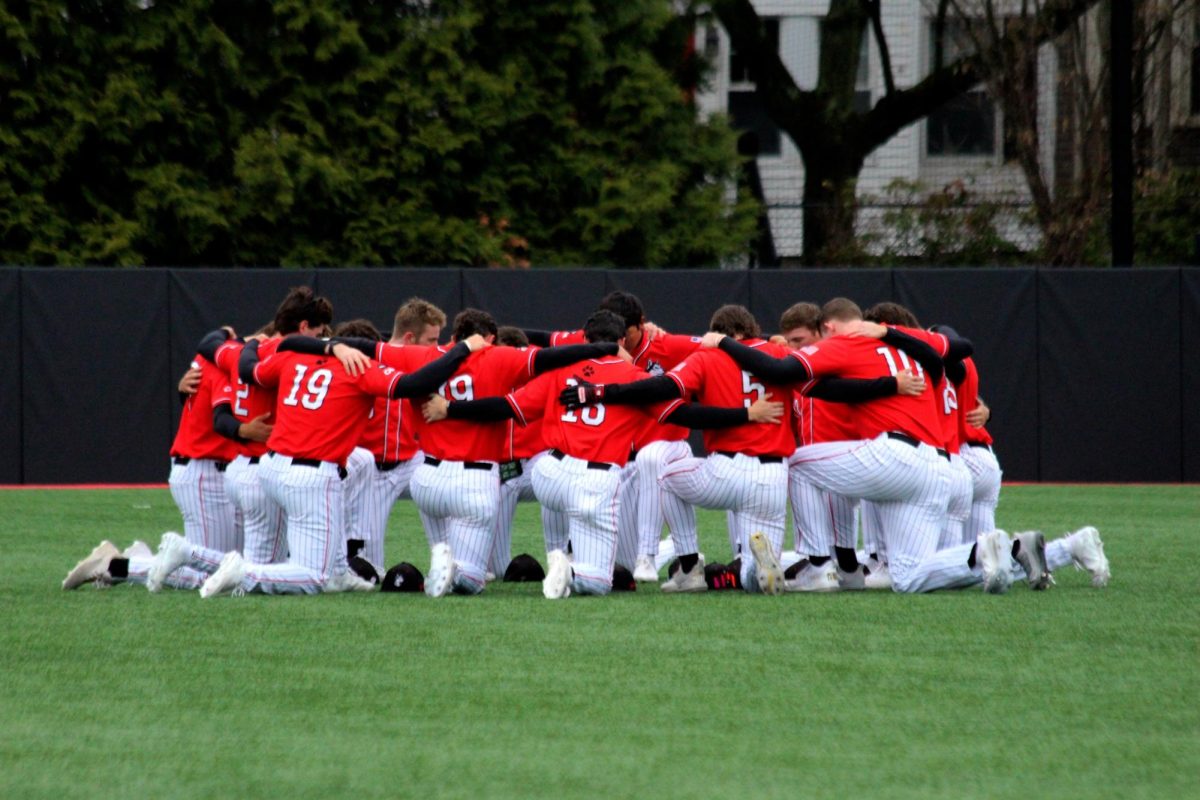Op-ed: The high cost and inaccessibility of COVID-19 treatment
The newly FDA approved COVID-19 treatments should be made more accessible.
February 23, 2022
Last year saw the world grapple with some of the most infectious and virulent variants of the COVID-19 pandemic: Delta and Omicron. Although both variants have seen a sharp decline in positive cases, new variants of a virus that has mercilessly spread throughout the global population could be on the horizon.
New authorizations of groundbreaking pharmaceuticals by the Food and Drug Administration, or FDA, could help combat the emergence of a new, dominant strain. As such, the general population’s access to any newly approved treatments should be unimpeded and free of cost. For individuals with a lower socioeconomic status, expensive treatments may not only be financially draining and unattainable, but the reduced access may also lessen the broader public health benefits of treatment.
The FDA has recently approved several novel modalities for the management of coronavirus. This includes oral antivirals like Pfizer’s Paxlovid, consisting of a combined package of ritonavir and nirmatrelvir tablets, and Merck & Co’s Mulnupiravir. In addition, the agency approved several intravenous monoclonal antibody therapies such as Sotrovimab.
Monoclonal antibodies are artificially made antibodies that target the surface spike proteins of viruses. All of the aforementioned medications have been approved for the treatment of mild-to-moderate coronavirus disease in patients who have a positive SARS-CoV-2 test. These prescription antivirals and monoclonal antibodies are not intended to be used as prophylactics, a medication aiming to prevent disease, rather, they are intended for patients who are at high risk of complications from a coronavirus infection. The FDA further reaffirmed that these new medications are not substitutions for vaccination and getting vaccinated and boosted is the best course of action in individuals who are considered at high risk for complications.
From a governmental standpoint, making Paxlovid and any other novel treatments free of cost for those testing positive for COVID-19 would help alleviate some of the symptoms of the pandemic on our healthcare system by lessening the effects of shortages in medical supplies, hospital staff and bed space. With the introduction of new medications like Paxlovid, Mulnupiravir and Sotrovimab, clinicians will be given a new and effective treatment for the medical management of the coronavirus disease.
The new antivirals and monoclonal antibodies are aimed at preventing disease progression from mild or moderate to severe. Such action would further decrease hospitalizations and death rates amongst the infected. By relieving some of the stressors from the pandemic on healthcare systems, we can hope to maintain normally functioning hospitals and intensive care unit space amid any future surges. Moreover, with a shift of focus away from the pandemic, healthcare institutions can focus resources on areas of health that have been neglected during the pandemic such as non-communicable, chronic illnesses.
For those in low-income areas, the equitable allocation of these life-saving therapies will be pivotal in maintaining the health of the community. If the federal or state government can step in to provide these medications at little or no cost to patients then more individuals who are diagnosed with the coronavirus disease can be given therapies that will keep them out of hospitals and reduce the probability of serious complications. This is cost-effective for both the patients, who will avoid lengthy hospital stays, as well as the hospitals themselves who will not be overburdened by droves of COVID-19 positive patients.
Low-income communities have an increased occurrence of non-communicable diseases, or NCDs, such as diabetes, cancer and heart disease. Unfortunately, the pandemic has caused a significant divergence of resources from the management and prevention of NCDs. Along with vaccination, we now have the tools to help appropriately mitigate the disruptive effects of the COVID-19 pandemic and correct the deviation of medical resources from diseases that, while non-communicable, are nevertheless threats to public health.
In addition to managing the cost of the new therapeutic agents, the supply and distribution of these new treatments must be improved to increase access. Although these drugs will play a frontline role in patient care, they are unfortunately scarce. This is partly why these drugs are reserved for high-risk patients. Even at a low cost, pharmaceutical companies will need to increase production for these drugs to make a widespread impact on the trajectory of the pandemic.
For the naysayers of the proposed ideas for the increased accessibility of drugs like Paxlovid, Mulnupiravir and Sotrovimab, we can point to the precedent set by the COVID-19 vaccine which was deemed so instrumental in the security of public health that it was made free to the public. In theory, the same principle could be applied to the medicinal treatments of coronavirus. Since the newly approved medications are paramount in the health of both the patient and the population, their necessity warrants them to be dispensed free of charge.
Nearly two years into the COVID-19 pandemic, providers are now armed with various means to stave off the virus and prevent serious illness or death. With the FDA’s authorization of new oral antivirals and intravenous monoclonal antibodies, we, as a society, would be remiss to withhold these lifesaving measures from the general population. Naturally, the duty of mitigating the cost and promoting the supply of these therapies falls to the elected officials within the federal and state governments who ought to take responsibility for the health of the communities in which they govern.
Northeastern University students have the unique responsibility to ensure that our concerns regarding the availability and affordability of new COVID-19 treatments are met by government officials and lawmakers. Boston has a poverty rate of 21.6%, higher than both the state and national poverty rate. Because of this, the effects of inaccessibility will be prominent and every Northeastern student should seek to raise awareness and reach out to their representatives.
Gabriel Holder is a first-year behavioral neuroscience major. He can be reached at holder.g@northeastern.edu.







